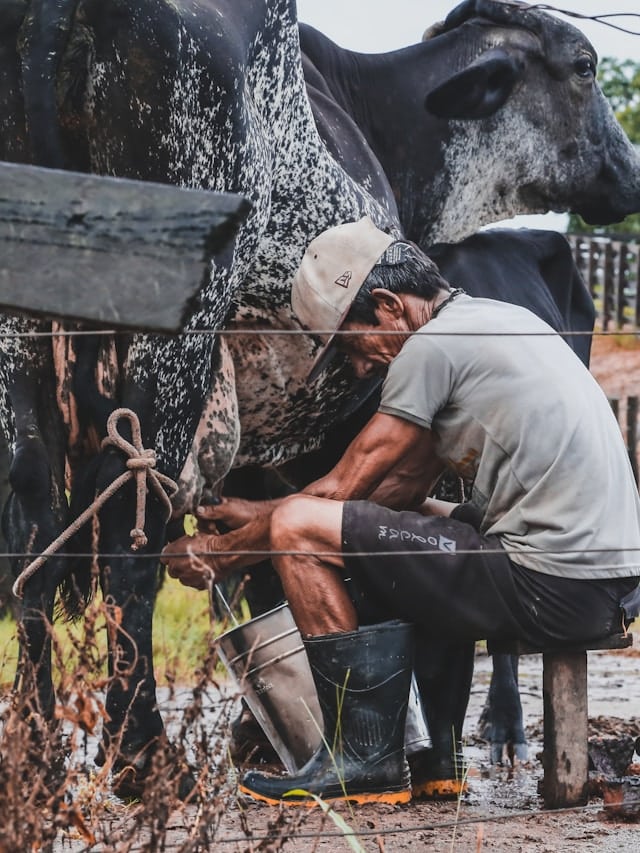As urban centres continue to expand, the importance of integrating sustainable solutions in city planning becomes more pronounced. One of these solutions is urban farming – a practice that is rapidly gaining popularity in areas traditionally characterised by heavy industry. By repurposing land for agricultural production, cities are not only maximising the use of available space but also reaping numerous economic benefits. This article takes a deep dive into the economic advantages of urban farming in post-industrial towns across the United Kingdom.
Harnessing Unused Land for Urban Agriculture
Post-industrial towns often have large plots of unused land that were once home to thriving factories and industries. However, with the decline of these industries, many of these lands lie barren and untapped. Urban farming provides an opportunity to transform these vacant lands into productive green farms.
Also to discover : What’s the Role of Community Energy Projects in Empowering UK Neighbourhoods?
Urban agriculture centres around the idea of utilising available space within a city for food production. It’s an approach that takes the concept of a farm and shrinks it down to a scale that fits within urban areas. Instead of vast fields, urban farms often consist of small gardens tucked in between buildings, rooftop greenhouses or even vertical farms on the sides of skyscrapers.
By harnessing these unused spaces for agriculture, cities can efficiently use their land, reducing the amount of wasted space and increasing overall productivity. In addition, urban farming can also increase the property value of surrounding areas, as green spaces are often seen as desirable features in urban environments.
Also to read : How to Develop a Sustainable Workplace Wellness Program in the UK?
Boost to Local Economy and Employment Opportunities
Urban farming also has the potential to revitalise local economies. By creating new farming sites within cities, urban agriculture can stimulate local economic development by creating jobs and improving food security.
In the context of post-industrial towns, urban farming can provide employment opportunities for residents who have been affected by the decline of traditional industries. The practice of urban farming encompasses a variety of professions, from farming to marketing, distribution, and even food processing.
This, in turn, can stimulate economic activity within the community, as individuals engage in buying and selling locally produced goods. Furthermore, urban farms can often lead to the development of related businesses, such as restaurants and cafes using locally grown produce, further boosting the local economy.
Enhancing Food Security and Reducing Costs
Urban farming plays a significant role in enhancing food security in cities. By growing food locally, cities can reduce their reliance on imports, thereby reducing the cost of food and making it more accessible to residents.
This localised production model can also decrease the cost of food transportation, leading to significant savings for both producers and consumers. It also ensures a steady supply of fresh produce, reducing the likelihood of food shortages and price hikes.
Moreover, urban farming empowers communities by giving them control over their food supply. This means that they can grow what they want and need, contributing to a more sustainable and secure food system.
Promoting Sustainable Practices and Green Spaces
Sustainability is another key advantage of urban farming. By incorporating agriculture into the urban landscape, cities can drastically reduce the environmental impact of their food production.
Urban farms can help reduce greenhouse gas emissions by eliminating the need for long-distance transportation of food. They also promote the use of sustainable farming practices, such as composting and water conservation, contributing to a greener and more sustainable city environment.
Furthermore, urban farms can serve as green spaces within cities, providing habitats for wildlife and improving the overall quality of life. These green spaces can also help to mitigate the urban heat island effect, a phenomenon where urban areas are significantly warmer than their rural surroundings due to human activities.
Strengthening Community Ties and Social Development
Beyond the economic benefits, urban farming can also promote social development by strengthening community ties. Urban farms often rely on community participation, fostering a sense of communal ownership and responsibility.
These farms can serve as gathering places, promoting community engagement and interaction. They can also provide educational opportunities, teaching residents about the importance of sustainable agriculture and healthy eating.
Furthermore, by promoting inclusivity and community engagement, urban farms can help to reduce social inequality and promote social cohesion within urban areas.
In conclusion, urban farming in post-industrial UK towns offers a plethora of benefits, from economic revitalisation to social development and environmental sustainability. It is a practice that holds the potential to reshape our cities, turning them into thriving, green, and sustainable communities.
Fostering Innovation and Technological Growth
The rise of urban farming in post-industrial UK towns is not just about turning vacant land into green spaces. It’s also about innovation, technological growth, and the opportunities they both create. Urban agriculture often necessitates creative use of space and resources, leading to innovative technologies and practices that could revolutionise the way we approach food production.
To accommodate farming in urban settings, farmers have developed unique methods such as vertical farming and peri-urban agriculture. Vertical farming, for instance, maximises space by growing crops in vertical layers. It often involves hydroponics, a method of cultivating plants without soil, which reduces water usage by as much as 70% compared to traditional farming methods.
On the other hand, peri-urban agriculture refers to the practice of farming on the periphery of urban areas, integrating rural and urban features to create a sustainable food production system. This innovative approach not only helps to increase food security but also contributes to the local economy and job creation.
Furthermore, these technological advancements are creating a new industry within post-industrial towns. Start-ups focusing on urban agriculture technologies are on the rise, creating jobs and attracting investment. These companies provide products and services such as smart watering systems, energy-efficient lighting for indoor farms, and data analytics for crop management.
All of these innovations and technological advancements contribute to the economic growth of post-industrial towns, making them more resilient and future-ready.
Animal Husbandry and Urban Farming
In addition to crop cultivation, another aspect of urban farming that contributes to its economic benefits involves animal husbandry. Keeping livestock within urban settings, if managed properly, can provide a significant boost to the local economy and food security.
Livestock rearing, be it poultry, small ruminants or even beekeeping, provides a source of protein-rich food that contributes to a balanced diet and improved nutritional status of urban dwellers. The products derived from these livestock such as eggs, milk, honey, and meat, can be sold within the local community, generating income for urban farmers and providing fresh and locally-sourced food options for consumers.
Moreover, animal waste can be utilised as a rich source of organic fertiliser, improving soil fertility for crop cultivation and reducing the cost of buying commercial fertilisers. This creates a cyclical and sustainable food system within the urban context.
However, it is essential to ensure proper management and regulation of urban animal husbandry to prevent health risks and environmental pollution. This involves implementing best practices for waste management, disease control, and animal welfare.
Conclusion
The benefits of urban farming in post-industrial UK towns are numerous and multifaceted. From harnessing unused land, boosting local economies, enhancing food security, promoting sustainable practices to fostering innovation and technological growth, urban farming has the potential to transform these towns into sustainable and resilient communities.
The practice of urban agriculture is not just about growing food; it’s about nurturing communities, stimulating economic growth, and paving the way for a sustainable future. It’s about envisioning a new kind of urban landscape, one that is green, productive, and harmonious.
Moreover, the rise of urban farming in post-industrial UK towns is a testament to the power of innovation and adaptability. It’s a testament to the resilience of these towns, their ability to reinvent themselves and thrive amidst change.
In conclusion, urban farming is more than just a trend. It’s a sustainable solution with profound economic, social, and environmental implications. It holds the promise of a better future, for post-industrial UK towns and urban areas around the world.











